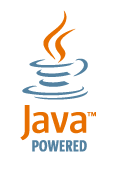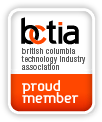Techsol Celebrates a Decade of Linux on ARM Designs with a Special Christmas Offer
Techsol Celebrates a Decade of Linux on ARM Designs with a Special Christmas Offer
Delta, British Columbia, Canada - December 22, 2010
Techsol has been designing low-power computers running the Linux operating system, and powered by a variety of ARM processors since 1999.
TECHSOL's HISTORY
Techsol's core engineering team has worked together for almost 25 years now. Starting with x86 processors and commercial RTOS offerings, they developed many low-power CMOS computer systems in the 1980s. Special-function products powered by low-cost 8-bit processors, such as NEC's 78c10, were also developed, sporting a home-grown operating system. Founded in 1996, Techsol started designing products for companies under contract. Going from idea to production with a variety of customers in a variety of markets presented an amazing education into both the technical and business needs of the product development divisions within companies. Over time, Techsol graduated from x86 designs (including USB and CompactFlash in markets such as payment terminals and portable medical devices) to ARM processor designs in the late 1990s.
Starting with a commercial, hard disk drive-based MP3 player design (2 years before the first iPod) and progressing through a variety of projects, Techsol discovered that 32-bit processors extended the development time of products, and that 32-bit operating systems compounded the problems. Longer and more-expensive design cycles prompted Techsol to develop the Medallion CPU module as a tool to reduce development time, cost, and risk. At the time, creating a 50 mm × 50 mm computer with a 32-bit expansion bus, full video (LCD and VGA signals) plus Audio and USB hosts was pretty radical. "The MP3 player ran Kadak's AMX RTOS on the CL7312. It was stunningly fast, especially coming from 25-MHz 186 designs. But the SW options in AMX were limited, especially for GUIs." So, after pondering the future of both embedded HW and SW, Techsol decided that HW was moving to ARM processors, and SW would most likely migrate to Linux. "Packaging a Linux-powered ARM computer into a small form factor looked like a great way to help other product developers leapfrog the huge learning curves associated with both technologies. Plus, we could continue to design products for customers, but they're all Medallion-powered, which dramatically reduces development time and cost."
Development of the HY7201, the first Medallion CPU module, started in 2000. An unusual processor was chosen: an ARM 720T-based Hynix (Hyundai) 7201 chip with both LCD and VGA controllers on board. However, the chip looked perfect for wearable computers, one of the company's areas of interest. Protos were working in 2001, and the first dev.kits shipped in 2002. "Creating a Linux BSP, including boot loaders, for an unsupported processor is an onerous task. But we worked from datasheets up with the CL7312, so our prior experience with MMUs and ARM's processor architecture eased development." The HY7201 ran Linux 2.4.x.
In 2005, the HY7201 was followed by the SA2410, which is powered by a Samsung ARM9 processor running Linux 2.6.x (2.6.12 to current). The SA2410 is now the mainstream model used in most customer designs.
TECHSOL TODAY
The SA2410 has been through about 10 revisions in order to keep everything current. However, the pinout of the module hasn't changed. Techsol's #1 focus is "planned non-obsolescence", which means releasing new products that plug into customer's old designs. "Our strict backwards compatibility is what really saves our customers money. That and our deep Linux experience and dedication to supporting the HW with piles of SW. Our customers typically don't even have Linux device driver-capable developers on staff -- they just concentrate on applications. We take care of the low-level details for them. We even preload the customer's image onto the products after testing every one running the latest Linux distribution."
This strategy has worked well: Techsol's customers are fiercely loyal to the company, partly due to the engineers' "we'll take care of it" attitude. Many tens of thousands of the SA2410 Medallion CPU module have shipped. Most designs have both touch screens and Ethernet. Design wins range from Automotive aftermarket to FDA-approved medical devices, with commercial, defense, and industrial customers in the mix too. In fact, the Medallion CPU module is probably the longest-running miniature Computer-on-Module (COM) form factor available, and certainly the oldest ARM SOM form factor in production.
Today, Techsol's Medallion Linux distribution uses Linux 2.6.35 and supports a variety of Samsung, Texas Instruments, and Freescale ARM9 and Cortex A8 processors. Based on OpenEmbedded, Medallion Linux offers a clean and flexible system for configuring the exact features needed in your next product.
FUTURE DIRECTIONS
There is so much new going on. Besides the SA2410 revision C3, there is a -D1 revision with new keyscan controller and larger memory options and an -E1 revision with on-board Ethernet (the Ethernet pins had been defined for 8 years). There is also a soon-to-be-released new, lower-cost form factor specifically targeting low-cost touch-screen computers. Watch for ARM 926 processors, Cortex A8 processors, and then Cortex A5 processors. And most will be available in both the compact, removable Medallion form factor, and the larger, new form factor. The next 10 years of ARM technology look as exiting as the first 10!
Techsol continues to design and manufacture embedded products for customers. Techsol's strategic vision is to service customers with low-cost, existing technology, while continuously introducing new technologies based on market interest. Recently, this meant PoE (Power over Ethernet) and dual Ethernet ports. Now interest is increasing in the Android OS; capacitive touch screens; and tablet-like form factors for industrial applications.
A SPECIAL CHRISTMAS OFFER
In order to celebrate this 10-year milestone, Techsol will make a special offer to customers starting on Christmas day. At this time, all that is known is that some products will be available in quantity=1 at a lower price than their normal quantity=1000 wholesale pricing! But you'll have to check the Medallion System Web site on Christmas day or later to get the details. This is a limited offer "while supplies last".






